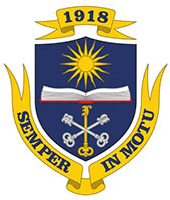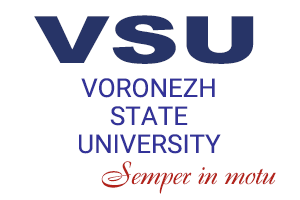The Department of History and Typology of Russian and Foreign Literature of the Faculty of Philology of VSU and the Slavic Department of the University of Göttingen have been running the master’s degree programme "Russian Literature in the European Context” for six years. Last year the programme celebrated its anniversary. Students of the Faculty of Philology have an opportunity to go to the University of Göttingen for an academic term and obtain a double degree.
They don’t need to speak German to enrol on the programme. The only requirement is to pass an entrance exam in the Russian language on Russian and foreign literature. On behalf of VSU the programme is supervised by Professor Andrey Faustov, Head of the Department of History and Typology of Russian and Foreign Literature. He emphasises that the programme is unique in our country.
“As far as I know, there are no other international master’s degree programmes in literature that give students a double degree and a scholarship. It is also important that our partner is the leading world university, and the Slavic Department there is headed by a brilliant linguist, Professor Matthias Freise. It is wonderful that our students have a chance to immerse themselves in modern literature studies in Europe and see a whole new world. Before the revolution, from the 18th to the early 20th century it was impossible to complete university education without such a trip to Europe. Our students obtain a unique experience that they can convert and apply for their professional needs. And not just for scientific research. Some of our graduates continued their studies at the University of Göttingen, some are working as teachers in Germany. But it is not only about a career. A great French philosopher, Michel Foucault, once said in an interview that he wrote books to improve himself and start thinking differently. So, any such experience gives us an opportunity to find something new, to open a new dimension - one we have never even thought about. This is what education is for.”
In July, yet another group of master's degree students completed the programme. Anastasia Kotikova told us about her studies in Germany and the way it influenced her life.
“Choosing a master’s degree programme is much harder than choosing a bachelor’s programme. At this point people usually understand what they want and what they can actually do and realize the value of time. Two years (the duration of a master's degree programme) is a long time, and it’s important that you don’t waste it. I think the main advantage of this programme is that it keeps an open dialogue between different mentalities. Is is the key idea behind the programme and it still determines the programme’s development. It is a great pleasure to go to an ancient European university, find a secluded spiral staircase leading to, say, a Romanists section and find yourself on the edge of languages and literatures. It’s great to walk along “their” corridors, breath “their” air, and then return home, to our own Slavic studies. But you come back a different person. You have a better understanding of yourself and the world. For me personally literary studies is a fascinating mental exercise. It is probably the only thing that can bring magic into our daily life. Studying in Germany for me was an opportunity to immerse in the mysterious and beautiful worlds of various philological schools.”
Sofia Lukina from Voronezh Institute of Education Development said that the master's degree programme helped her to broaden her own cultural and scientific boundaries.
“This programme is a chance to get to now a different culture, language, education system, and ways to interpret literature in real life. It is a chance to broaden your horizons. Studying at the University of Göttingen, one of the oldest traditional education centres in Lower Saxony, is not just a chance to see the country and learn German. It is a chance to find new opportunities both in cultural and scientific areas. The University of Göttingen has wonderful libraries with unique books and articles students can use for their master’s degree theses. The programme “Russian Literature in the European Context” at the University of Göttingen can give you the knowledge that you need to become a good professional and to improve your professional expertise. The double degree programme (having completed this programme you obtain two diplomas: a Russian and a German one) broadens your knowledge and experience, and at the same time gives you practical skills necessary for a successful career in any sphere that involves solving intellectual and humanitarian tasks.”
Yulia Tsai graduated from the programme last year. She was so fascinated that she decided to go on with her studies and enrolled on a PhD programme.
“The programme had such a great effect on me, that I even didn’t realise it at first. At the University of Göttingen, besides the compulsory courses we could choose optional ones. So, we all had B2-level language course, but I also attended C1-level course, and theatrical German, where we learned the language through gestures and emotions and performed in short plays. I boosted my knowledge immensely. I also went to Katja Freise’s course “Introduction to film analysis” where we discussed the language of cinematography with other students. And, of course, the lectures by Professor Matthias Freise. I had been to his open lectures in Voronezh. There were only four or five of them, and I always wanted more. So I was delighted that I could study his typology method for the whole term. I am working on my PhD thesis now, and I see how much I learned at the University of Göttingen: new methods and approaches to literary studies that the teachers told us about make me feel confident when dealing with literary texts.”
Photos from personal archives of the speakers








